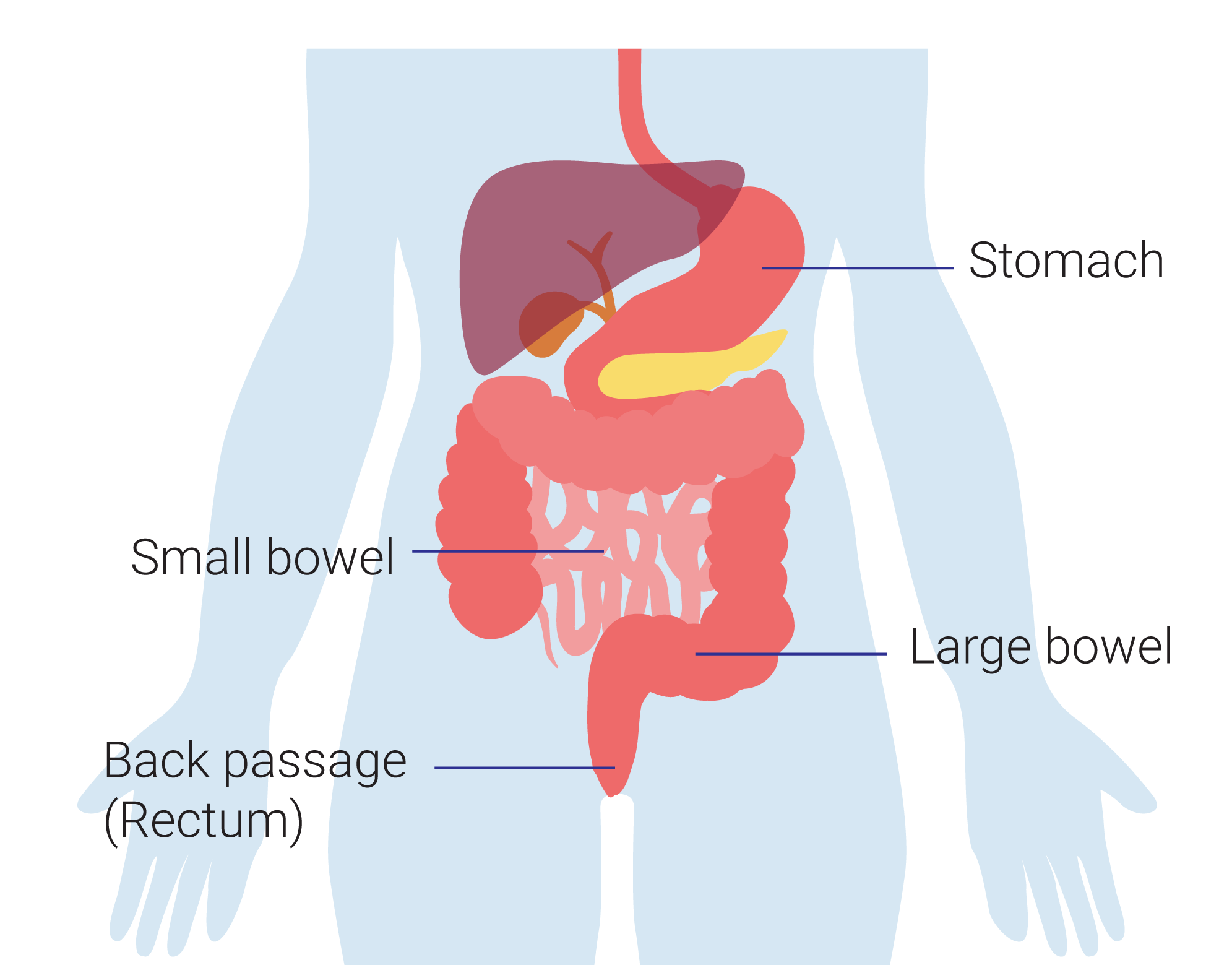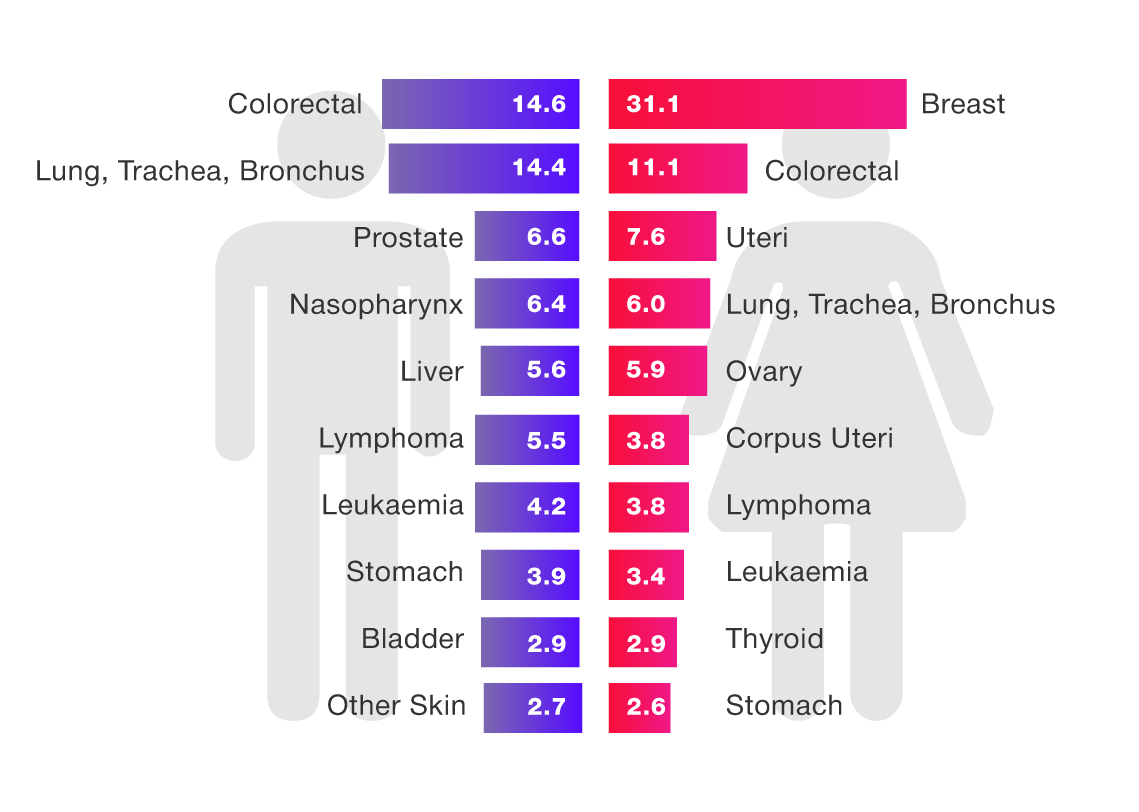Colorectal Cancer
What is Colorectal Cancer?

Also known as bowel cancer and colon cancer, colorectal cancer occurs in the colon or rectum. The colon and the rectum are parts of the large intestine, which is the lower part of the body’s digestive system.
During digestion, food moves through the stomach and small intestine into the colon. The colon then absorbs water from the food you eat and passes waste out of the body as stool.
How Common is Colorectal Cancer?
Colorectal cancer is the most common cancer amongst males and the second most common cancer in females in Malaysia.
According to the Malaysian National Cancer Registry Report (2007 – 2011), 21.3 cases were diagnosed per 100,000 population. The incidence was highest in Chinese followed by Malay and Indian. Colorectal Cancer mainly affects people who are aged 40 years and above.
INCIDENCE RATE (ASR) FOR TEN MOST COMMON CANCER BY SEX
AGE STANDARDIZED RATE (WORLD) PER 100,000 POPULATION


What are the Survival Rates?
The earlier colorectal cancer is found and treated, the better the chances are for it to be cured. Currently, colorectal cancer is often detected at a late stage and chances of survival are reduced.
Therefore, watch out for the signs and symptoms and get it checked as soon as you notice any abnormal changes.
If you notice any of these signs or symptoms, see your doctor immediately. It could be nothing but it is better to play it safe. Always check with your doctor.
Signs & Symptoms
Who is at risk?
How can you reduce your risk?
Screening & Diagnosis

Through screening, cancer can be detected before you experience any symptoms. Finding cancers early means that treatment is likely to work best and your chances to survive are increased. In Malaysia, the following screening guidelines apply:
- At any age, if you experience any of the described symptoms, see your doctor urgently to get checked.
- If you are aged 50 years or above, go for a yearly check-up. The aim of a yearly colorectal cancer screening is to detect colorectal cancer at an early stage (in people with no symptoms) when treatment is more likely to be effective.
- If someone in your family has Colorectal Cancer, go for a yearly check-up, starting at age 35.
There are the two main tests that are commonly used to screen for colorectal cancer.
Faecal Occult Blood Test (FOBT) and Faecal Immunoglobulin Test (FIT):
These tests are used to look for unseen traces of blood in the stool. Blood in the stool can be a sign of bowel cancer so further tests can then be carried out.
Colonoscopy:
This type of screening lets your doctor see inside your colon to detect polyps. These may develop into cancer later if they are not removed.
Treatment
There are several treatment options for colorectal cancer. Speak to your doctor to find out the best treatment option for you.
A list of all government hospitals in Malaysia can be found here.
Further information about Colorectal Cancer can be found under Resources.


